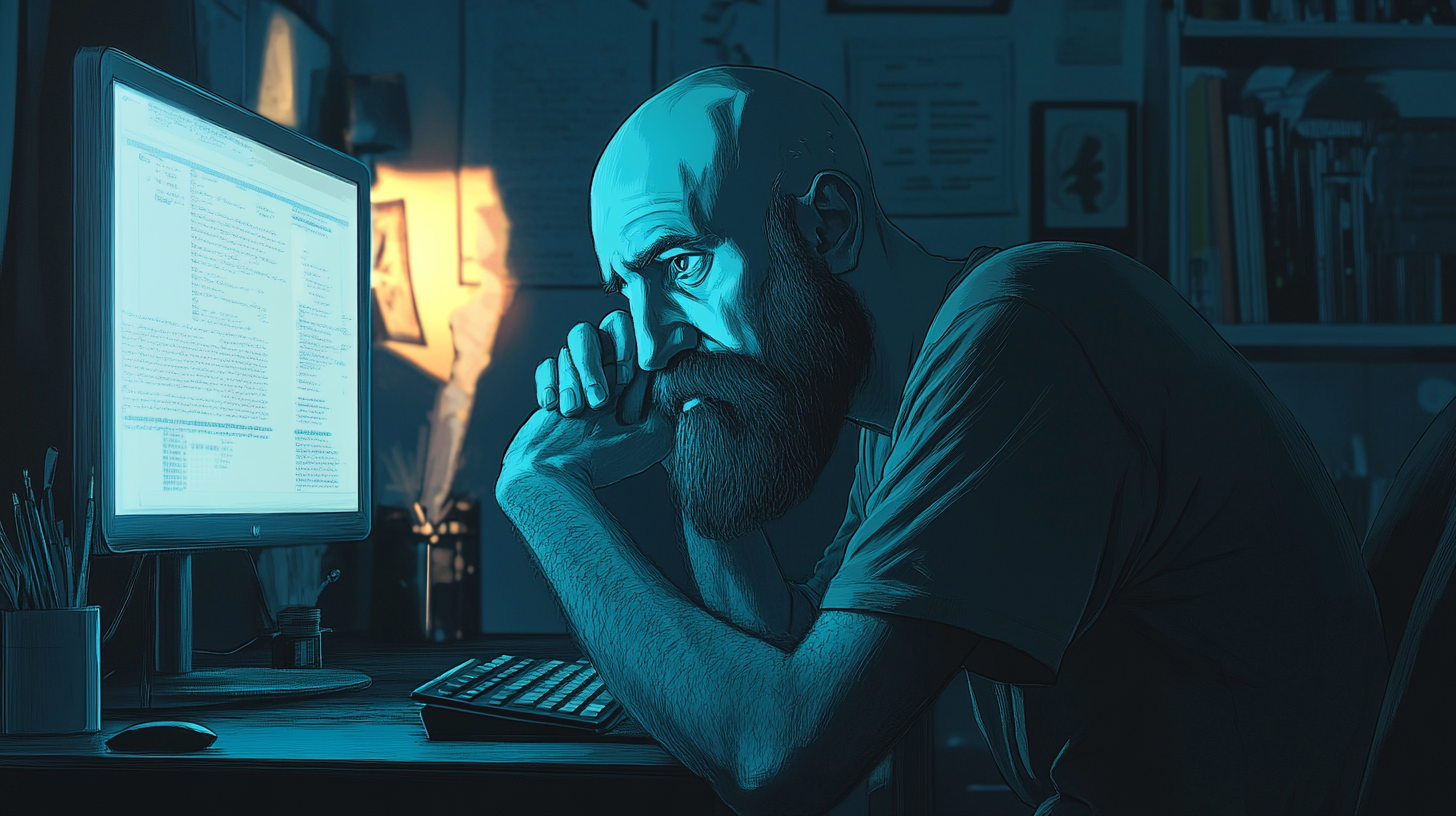How I Lost Decades to Mental Illness and How I’m Trying to Build a Business Before 60
Yes, I was reading business books, mapping out strategies, building business plans, and planning in secret. I was learning everything I could while battling my own mind for control, hoping for the day when I could do something without being sabotaged.

For most of my life, I wasn’t building anything.
I was surviving. I was barely staying alive.
Yes, I was reading business books, mapping out strategies, building business plans, and planning in secret. I was learning everything I could while battling my own mind for control, hoping for the day when I could do something without being sabotaged.
I was just trying to get through the day without ending it all. Some days that meant lying in bed, staring at the ceiling, wondering if it would ever get better. Other days it meant pretending I was okay so no one would ask questions I couldn’t answer.
I didn’t grow a career. I mean, I tried. For a while I even worked my way into six figures without a degree. I did it with hard work and perseverance. But my mind betrayed me, and everything I worked for was lost.
Imagine thinking you had put it all behind you. You had the house, the car, the career, the family. Then imagine losing it all in a haze of blood, drugs, and suicidal ideation.
That was me.
As much as I wanted to, I didn’t build any startups. I tried many times, but failed. I didn’t launch a newsletter or a podcast or anything else people seem to do in their 20s and 30s when they’re full of energy and ambition.
Because I wasn’t full of energy. I was full of fear, sadness, and self-doubt. Mental illness had me in a chokehold. I couldn’t see past the fog.
I blogged, and for a while kept it up enough that people started knowing my name. But I always lost it because my brain betrayed me in the worst ways possible, and I was left with was regret and embarrassment.
The Long Wait
I’m 56 now. I didn’t start my “second act” until I was 52. That’s when things finally shifted. I finished college. All the self-help books I read started helping. The meds started working. The fog didn’t exactly lift, but it got thinner. I could breathe. I could think. I could imagine a life beyond survival.
And when that happened, I realized something terrifying: I wanted more.
I didn’t want to just exist anymore. I wanted to build. I wanted to write, create, launch, share. I wanted to be successful. Not in a flashy, billionaire-founder kind of way. But in a way that meant freedom. Peace. Ownership. Enough money to not be scared all the time.
So I got to work. I started learning more. I started shipping. I started showing up online. I started building those newsletters. I started writing again. I began sketching out software ideas and building tools for people like me.
Late bloomers, folks who’ve been through the fire and still want to make something.
But Here’s the Truth:
Mental illness doesn’t just disappear. It doesn’t pack its bags the moment you get motivated. It sticks around. Quiet, patient, lurking in the corners.
Some days I wake up with fire in my chest. I make a plan. I write. I code. I feel unstoppable.
Other days, I feel it creeping back in. The tiredness. The heaviness. The static in my brain. The voices that say, “Why bother?” The voices that tell me I’m too late. That I missed my chance. That I’m a fool for trying.
I didn’t waste my younger years because I was lazy. I lost them because I was unwell. Because as hard as I tried, there was always the voices in my head that I knew shouldn’t be there, there was depression, and there was anxiety.
And now, as I fight to make something of myself, that same illness keeps tapping me on the shoulder, reminding me that it never really left.
The Clock Is Ticking
I have a number in my head: 60. That’s the age I’ve given myself to become financially secure.
Not rich. Just secure. I want to stop feeling like I’m always one bad month away from collapse.
I want to work for myself. I want to control my time. I want to help people like me. I want to create tools and stories and resources that remind people they’re not too late.
I want to build community and authority. I want the things that have happened to me to have meant something. I want to use my experience as building blocks for the things I am creating now.
But it’s hard to build when your brain keeps pulling the emergency brake.
It’s hard to keep momentum when every week feels like a battle.
It’s hard to dream big when you’re just trying to feel okay.
What I’ve Learned
I’ve learned to build slowly. To forgive myself when I fall behind. To make plans with plenty of breathing room. I don’t “crush it” every day. Some days, I just move something forward an inch, and that counts.
I’ve learned that mental illness doesn’t make me less of an entrepreneur. It just means I have to do it differently. I have to pace myself. I have to stay aware. I have to choose projects that feed my energy, not drain it.
I’ve learned that I’m not alone.
There are so many entrepreneurs out there battling anxiety, depression, burnout, PTSD, often in silence. We see the highlight reels. The big exits. The flashy product launches. But behind the scenes, a lot of people are just like me: fighting their own minds while trying to build something that matters.
This Is What It Looks Like
This is what my second act looks like:
- Working a contract job to keep the lights on while I build in the cracks.
- Writing essays in my “free” time because that’s when my thoughts are clearest.
- Sketching out product ideas on napkins and sticky notes.
- Trying and failing and trying again.
- Dealing with waves of sadness that have no clear reason. Dealing with the voices in my head and the crushing anxiety that doesn’t let up.
And still… showing up. Even when it’s hard. Especially when it’s hard.
Why I’m Sharing This
I’m not writing this for pity. I’m writing it because I know I’m not the only one. If you’ve lost time to mental illness — if you feel behind, broken, stuck — I want you to know you’re not alone. And you’re not done.
You can still build. You can still write. You can still start again.
You can be 52, or 56, or 63 and decide now is the time to make your mark.
It won’t be easy. It might never be. But it will be worth it.
I don’t know if I’ll hit my goal by 60. But I do know I’m fighting for it. Every day. Even on the days I don’t win.
And if you’re out there, fighting too, know this:
I’m rooting for you.
One honest hour at a time.
